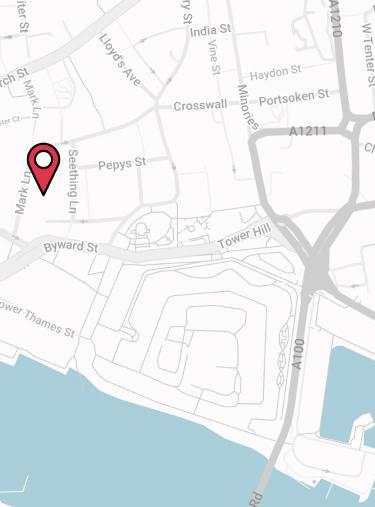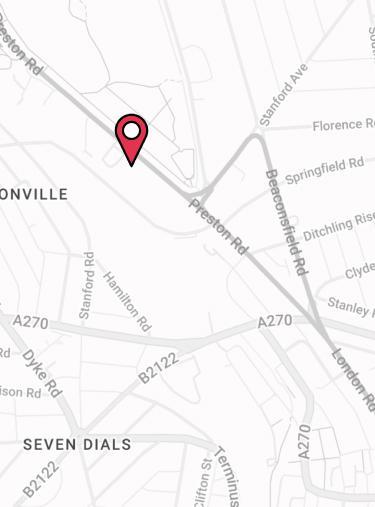
6 Costly Inheritance Tax Mistakes to Avoid When Passing Your Estate On To Your Children
What is Inheritance Tax?
Of all taxes raised by HMRC, the one that seems to cause the most reaction is inheritance tax (IHT), unofficially known as ‘Britain’s most hated tax’. It’s levied on the assets of people who have died.
Inheritance tax receipts into the Treasury have almost doubled since the 2010/11 tax year, rising from £2.72 billion to £5.38 billion by 2018/19.
The Inheritance Tax Threshold
This is down to a number of factors. Inheritance tax has a ‘threshold’; if your estate (the value of most of the property you own at the date of your death) exceeds this threshold, inheritance tax may be due. The threshold is officially known as the ‘nil-rate band’.
Any part of the estate up to the nil-rate band threshold is chargeable at a rate of 0% for inheritance tax purposes. Any part of the estate that exceeds this threshold becomes chargeable on death at 40%.
However, the inheritance tax threshold has been frozen at £325,000 for some years now. This has obviously not kept up with rising house prices, which has been a big factor in dragging more and more estates over the threshold and requiring them to pay tax. The average inheritance tax bill has now reached almost £200,000.
The government has tinkered around the edges of the threshold by introducing a residence nil-rate band, which added an additional nil-rate band for those passing on their home to their direct descendants, but inheritance tax receipts have continued to rise despite this.
The Top 6 Inheritance Tax Mistakes People Make Passing On Their Wealth
Given its unpopularity, many people understandably look to avoid inheritance tax if possible.
However, it’s a complicated and confusing area and one that’s easy to get wrong, which could prove costly for either you or your heirs later on down the line.
Below are six mistakes people make when trying to cut their inheritance tax bill and how to avoid them.
- Not having an up to date Will
- Limiting gifts to £3,000 per year
- Not putting Life Insurance into Trust
- Thinking Trusts are free from IHT
- Gifting your house but remaining in residence
- Selling your home to your children for less than market value
1. Not Having an Updated Will
Having a will — and keeping that will updated — is essential when it comes to inheritance tax.
A properly-executed will can be vital to ensuring your estate is distributed as you wish and that no unnecessary additional inheritance tax is due.
It is widely assumed that if someone is married or in a civil partnership, their entire estate will pass to their surviving spouse or partner on their death free of inheritance tax.
Yet if you do not have a will this will not necessarily happen. If you are married, have an estate in excess of £270,000 and have children, then your children will share in part of your estate. The larger the amount they receive, the more chance there is of IHT being charged.
This is because of the rules of intestacy, which govern who can inherit when there’s no will.
Another common misconception is that the UK gives status to ‘common law’ partners, i.e. those couples living as married but who haven’t actually tied the knot. In England and Wales, no provisions exist for them to inherit anything automatically if you pass away.
Regularly review your Will…
Things change, and therefore so should your will. Your old will made years ago was made in accordance with the tax laws at the time. It was also made with reference to your family structure and assets as they were at the time the will was made.
Things move on quite quickly, and so wills should be kept up to date. This is especially true if there’s been a recent marriage, as a second marriage, for instance, revokes an old will.
Recommended Online Will Writing Service
Drewberry has partnered with online will-writing giant Farewill to help those in England and Wales get a will in place if they don’t have one already.
You can read our review of the service they offer — and get access to an exclusive discount — here.
2. Limiting Gifts to £3,000 per Year
Every individual has a number of gift exemptions they can give away each year and have these gifts be inheritance tax-free.
One of the most ‘generous’ of these is the £3,000 in each tax year (6 April to 5 April) that you can gift to whoever they chose. You can carry over up to £3,000 in unused IHT allowance from one tax year to the next, but you must use up all of your allowance in that tax year.
This gift exemption means that many people think £3,000 is the maximum they can give away each year and have the gift be free from inheritance tax, but this isn’t strictly true.
Potentially Exempt Transfers
A Potentially Exempt Transfer (PET) enables an individual to make gifts of unlimited value where there is no immediate inheritance tax charge. It is only if you die within 7 years of the gift that there will be any IHT consequences.
Note that people you give gifts to will be charged inheritance tax if you give away more than £325,000 in the 7 years (and potentially up to 14 years) leading up to your death.
Other Gifts Free from Inheritance Tax…
- Gifts worth less than £250
You can give as many gifts of up to £250 to as many individuals as you want (although not to anyone who has already received a gift of your whole £3,000 annual exemption). - Wedding gifts
In this case, if the gift is to be effective for inheritance tax purposes, it has to be made before, not after, the wedding and the wedding has to happen. You can give gifts up up to £5,000 to a child; up to £2,500 to a grandchild or great-grandchild; or up to £1,000 to another relative or friend. - Gifts to help with living costs
Gifts to help pay the living costs of an ex-spouse, an elderly dependent or a child under 18 or in full-time education might be exempt - Gifts from your surplus income
If you have enough income to maintain your usual standard of living, you can make gifts from your surplus income, e.g. regularly paying into your child’s savings account, or paying a Life Insurance premium for your spouse or civil partner. To make use of this exemption, it’s very important that you keep very good records of these gifts as the rules for this exemption are complex. For example, these gifts must be regular, so you need to be committed to keeping up with making these gifts. It’s best to speak to a legal or estate tax adviser first if you want to use this exemption. - Charitable gifts
Whilst it is generally known that gifts to charities are exempt from inheritance tax, it is not common knowledge that you can also cut the inheritance tax rate on the rest of your estate from 40% to 36% if you leave at least 10% of your ‘net estate’ to a charity.
Inheritance Tax and Gifts Insurance
If you’re concerned about the inheritance tax that may be due on gifts you make during your lifetime — known as gifts inter vivos — then there is insurance you can purchase to pay out on your death to clear this liability during the 7 year window a gift may be pulled into your estate if you don’t survive the required time after making it.
Without a gifts inter vivos insurance policy, the recipient of the gift may have to pay inheritance tax even though the money could already be spent.
Perhaps if the gift were for a house purchase, for example, and the sale goes through, then it’s unlikely the recipient of the gift will have the spare capital to pay the inheritance tax bill due some years after the gift was made.
A gifts inter vivos policy will pay out on a sliding scale to match the taper relief available on a large gift above your inheritance tax threshold, sparing the recipient of the gift from having to find the cash long after they received the gift.
3. Not Writing Your Life Insurance into Trust
The biggest mistake we find on the protection side of the business is that our clients don’t realise they need to write their Life Insurance policies into trust.
We often explain the need to do so and the benefit of having a trust in place to hold the Life Insurance policy — if you don’t, the value of the payout will be added to your estate when you pass away.
This could tip you over the inheritance tax threshold fairly easily, even with a modest policy, meaning the taxman will take a bite out of the legacy you were seeking to leave your loved ones.

The most recent figures from HMRC reveal there were 4,360 estates that paid inheritance tax with a Life Insurance policy as part of the estate.
These policies were worth £444 million, netting the Treasury £177.6 million out of Life Insurance policies that were meant to go to the deceased’s loved ones.
Robert Harvey
Head of Protection Advice at Drewberry
It’s quick and simple to write Life Insurance into trust — in many cases it can be done online. If you need help with this please do not hesitate to get in touch.
4. Thinking Trusts Are Free from Inheritance Tax
A trust is a legal arrangement through which you can give assets to someone so they can look after them for the benefit of a third party.
For instance, you may put some of your cash in trust for your children with the stipulation that the managers of the trust don’t release the cash until your children reach a certain age.
It’s a common misconception that assets in trust are exempt from inheritance tax. However, you will need to survive 7 years (and potentially up to 14 years depending on previous gifts to trust) before the assets in the trust fall outside your estate.

Trusts are complicated business. As such, it’s highly recommended that you use an experienced, professional adviser or a solicitor to help you identify the most suitable trust arrangement for your needs and ensure that the trust is properly administered.
Jonathan Cooper
Head of Paraplanning at Drewberry
For most types of trust, inheritance tax is charged at a lesser rate (20%) on assets ‘settled’ into the trust at the time the gift is settled — this is known as the lifetime rate because most gifts into trust are chargeable lifetime transfers (CLTs). There may be further inheritance tax due depending on the gap between you making the gift and your death.
There are some exceptions, such as if you continue to benefit from the assets. The way a trust is taxed depends on what sort of trust it is.
5. Gifting Your House But Remaining in Residence
With property making up the majority of many people’s estates, it’s one area people think is ripe for cutting inheritance tax.
One way they seek to mitigate an inheritance tax bill is to give their home to their children before they pass away — if you don’t own the home when you die, you don’t need to pay tax on it, right?
Well, while in theory that is the case providing you live for at least 7 years (and potentially up to 14 years if you’ve previously made gifts into certain trusts), this assumes you move out of the house entirely and retain no benefit from it, or at the very least pay your children, who’ll be your new landlords, a market rent for the property.
Otherwise, if you continue to live rent-free in the gifted property, then the HMRC will deem this to be a ‘gift with reservation of benefit’. This is because even though you have transferred the assets to your children you have not actually given up the use (the ‘benefit’) of it.
In such circumstances your estate would be treated as though the asset was still in your estate on death. In addition your children could actually be worse off if you choose this course of action as the property might rise in value and then be subject to capital gains tax when they sell it.
Can I Own My Home Jointly With My Child?
Yes, but again a word of caution.
It’s possible to gift away part of your home to your children and continue to live in the property. You will not typically have to pay rent to the new owners (your child) if both the following apply:
- You only give away part of your property
- The new owners also live at the property.
However, if you die within 7 years (and potentially up to 14 years) of giving away all or part of your property, your home will be treated as a gift and the 7 year rule applies.
While you may feel that you have a good relationship with your child and that living with them wouldn’t be a problem after you sign away part of your property to them, you have to think about the future.
By making them a part-owner of the property you give them certain rights, including potentially to evict you should relations sour. Another common issue is where your child has a spouse / civil partner who also lives in the property with you but they later separate and the ex-partner lays claim to part of the home in the divorce / dissolution proceedings.
Selling Your Home to Your Heirs for Less than Market Value
If gifting your property to your children may not work, what about selling it to them for less than it’s worth, a ‘peppercorn’ price?
Unfortunately, HMRC have already thought of this one and this won’t wash either.
The difference between the market value of the property and the reduced sum of money you sell it to your child for will be classed as a gift for inheritance tax purposes. If you don’t live for another 7 years after making the gift, it could be swept back into your estate and taxed.
Getting Inheritance Tax Advice
Inheritance tax is a complicated area, especially when you start to attempt to reduce a potential inheritance tax liability with measures such as trusts and Life Insurance policies. It’s one area that’s essential to get right, and one that often needs the help of a specialist.
If you would like to discuss your options with one of our advisers please do not hesitate to give us a call on 02084327334 or email help@drewberry.co.uk.
Why Speak to Us?
We started Drewberry because we were tired of being treated like a number. We want to give you as our client the service you deserve when discussing matters as important as planning your financial future.
Below are just a few reasons why it makes sense to let us help:
- See your financial future
Our sophisticated financial modelling technology visually maps out your financial future. Get a living financial plan that clearly shows what you can achieve depending on the decisions you make — read more here. - Achieve the retirement you deserve
Can you afford that dream round-the-world trip? Can you help your children onto the property ladder? We’ll model your goals and build your financial plan to help you achieve them. - Our knowledge saves you time and provides peace of mind
We take care of it all, from organising your pensions, investing your assets, managing risk and making the most of your tax allowances. - We’ve got bargaining power on our side
This allows us to negotiate better rates for you than dealing with providers yourself. - You’ll speak to a dedicated specialist from start to finish
You’ll speak to a named specialist with a direct phone line and email. No more call centres and machines asking you to press this and that — you’ll speak to someone who knows you. - Benefit from our 5-star service
We pride ourselves on providing 5-star service, as seen in our 4072 and growing independent client reviews rating us at 4.92 / 5. - Gain the protection of regulated advice
Our regulated advice service means you are protected. We’re responsible for the decisions we help you make. Doing it yourself or going direct to a provider doesn’t offer this protection, so you won’t benefit from these securities.
- Topics
- Inheritance Tax
- Retirees
Contact Us
125-135 Preston Road
Brighton
BN1 6AF
Cookies
Drewberry™ uses cookies to offer you the best experience online. By continuing to use our website you agree to the use of cookies including for ad personalization.
If you would like to know more about cookies and how to manage them please view our privacy & cookie policy.








